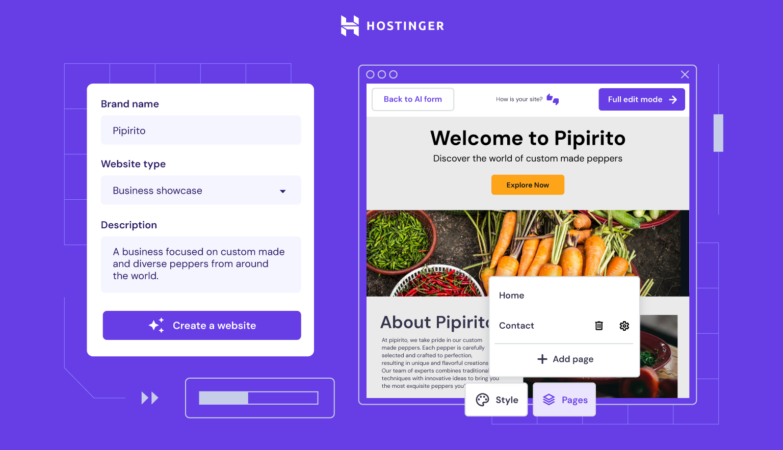If you’re experiencing knee pain, you may be wondering if a chiropractor can provide relief. Knee pain can be caused by a variety of factors, including injuries, overuse, or underlying conditions. Chiropractic care focuses on the health of the spine and the musculoskeletal system, which can impact other parts of the body, including the knees.
Chiropractors are trained to assess and treat musculoskeletal issues, and they may be able to help alleviate knee pain. They use a variety of techniques, such as spinal adjustments, soft tissue therapy, and exercise prescription, to address imbalances in the body and promote natural healing.
It’s important to note that the effectiveness of chiropractic care for knee pain can vary depending on the underlying cause of the pain. In some cases, chiropractic treatment may be used in conjunction with other therapies, such as physical therapy or medication, for optimal results.
Key Takeaways:
- A chiropractor may be able to help alleviate knee pain by addressing musculoskeletal imbalances.
- Chiropractic care focuses on the health of the spine and the musculoskeletal system, which can impact other parts of the body, including the knees.
- The effectiveness of chiropractic treatment for knee pain can vary depending on the underlying cause of the pain.
- Chiropractic care is often used in conjunction with other therapies for optimal results.
- If you’re experiencing knee pain, it’s important to consult with a chiropractor or healthcare professional for a proper diagnosis and personalized treatment plan.
Understanding Gluten and its Effects on Gluten-Intolerant Individuals
Gluten is a protein found in wheat, barley, and rye, and it can cause health issues for individuals with gluten-related disorders. Two common gluten-related disorders are celiac disease and gluten intolerance.
Celiac disease is an autoimmune disorder where the immune system reacts to gluten, damaging the small intestine. It affects approximately 1% of the population and requires a lifelong adherence to a strict gluten-free diet to prevent complications.
Gluten intolerance, also known as non-celiac gluten sensitivity, is a condition where individuals experience symptoms similar to celiac disease but without the intestinal damage. The exact prevalence of gluten intolerance is unknown, but studies estimate that it may affect up to 6% of the population.
For those with gluten-related disorders, consuming gluten can lead to various symptoms, including:
- Digestive issues such as abdominal pain, bloating, and diarrhea
- Skin problems like rash or dermatitis herpetiformis
- Fatigue and weakness
- Joint pain and inflammation
It’s crucial for individuals with gluten-related disorders to follow a strict gluten-free diet to avoid these symptoms and prevent long-term complications. This involves eliminating foods and products containing wheat, barley, and rye from their diet.
The Difference Between Celiac Disease and Gluten Intolerance
While both celiac disease and gluten intolerance involve a negative reaction to gluten, they differ in terms of immune response and potential consequences.
In celiac disease, the immune system mistakenly attacks the lining of the small intestine when gluten is consumed. This immune response causes damage to the small intestine, leading to malabsorption of nutrients and various symptoms. If left untreated, celiac disease can result in serious health complications, including nutrient deficiencies, osteoporosis, infertility, and an increased risk of certain cancers.
On the other hand, gluten intolerance does not involve the same immune reaction or intestinal damage seen in celiac disease. However, individuals with gluten intolerance experience similar symptoms when they consume gluten, such as digestive problems and fatigue. While the long-term consequences of gluten intolerance are not as severe as celiac disease, the symptoms can still significantly impact an individual’s quality of life.
“For those with gluten-related disorders, consuming gluten can lead to various symptoms such as digestive issues, skin problems, fatigue, and joint pain.”
Gluten-Free Diet for Gluten-Related Disorders
The cornerstone of managing gluten-related disorders is following a strict gluten-free diet. This means eliminating all sources of gluten from the diet, including foods, beverages, and even certain medications and personal care products that may contain hidden gluten. It’s crucial to carefully read food labels and be aware of potential sources of cross-contamination.
Fortunately, there are many gluten-free alternatives available that allow individuals with gluten-related disorders to enjoy a varied and nutritious diet. These include:
- Gluten-free grains and flours, such as rice, quinoa, corn, and almond flour
- Fruits and vegetables
- Lean meats, fish, and poultry
- Dairy products, unless lactose intolerant
- Legumes and nuts
- Gluten-free bread, pasta, and baked goods
By focusing on naturally gluten-free foods and choosing certified gluten-free products, individuals with gluten-related disorders can confidently enjoy a well-rounded and safe diet.
| Gluten-Containing Foods | Gluten-Free Alternatives |
|---|---|
| Wheat-based bread, pasta, and cereals | Gluten-free bread, pasta, and cereals made from rice, corn, quinoa, or other gluten-free grains |
| Barley and rye products | Gluten-free grains and flours, such as oats*, cornmeal, or almond flour |
| Beer and other alcoholic beverages made from barley or rye | Gluten-free beers and alcoholic beverages made from rice, corn, or other gluten-free grains |
*Note: Oats themselves are naturally gluten free, but they are often cross-contaminated during processing. It’s essential to choose certified gluten-free oats to ensure they are safe for consumption.
Remember, if you suspect you have a gluten-related disorder, it’s important to consult a healthcare professional for a proper diagnosis and guidance. They can conduct appropriate tests and provide dietary recommendations tailored to your specific needs.
Ingredients in Boba Tea and Gluten Concerns
Boba tea, also known as bubble tea, is a delicious and refreshing beverage enjoyed by many. It typically consists of key ingredients such as tea, milk or non-dairy alternative, sweetener, and tapioca pearls. However, if you have gluten sensitivities or celiac disease, it’s essential to be aware of potential gluten concerns in boba tea.
Tapioca pearls, the iconic chewy balls in boba tea, are made from cassava root, which is naturally gluten free. This means that the tapioca pearls themselves do not contain any gluten, making them safe for those with gluten sensitivities or celiac disease.
However, when it comes to other ingredients used in boba tea, such as flavored powders and sweeteners, there is a possibility that they may contain gluten. The specific ingredients used can vary between boba shops and brands, so it’s crucial to read the ingredient labels and ask the boba shop about their gluten-free options.
To ensure a gluten-free boba tea, here are some tips to keep in mind:
- Check the ingredients: Read the labels carefully to identify any potential gluten-containing ingredients in flavored powders and sweeteners.
- Ask the boba shop: Inquire about their gluten-free options and whether they offer tapioca pearls made without gluten-containing ingredients.
Some boba shops may also offer alternative sweeteners that are gluten free, ensuring a safe option for individuals with gluten sensitivities or celiac disease. By being mindful of the ingredients used and asking the right questions, you can enjoy a delicious and gluten-free boba tea.
Gluten-Free Boba Tea Ingredient Checklist:
| Ingredient | Potential Gluten Concerns |
|---|---|
| Tapioca Pearls | No gluten concerns, naturally gluten free |
| Flavored Powders | Possible gluten-containing ingredients, check labels |
| Sweeteners | Possible gluten-containing ingredients, check labels |
| Milk or non-dairy alternative | No gluten concerns, unless specifically added |
Remember, it’s always important to verify the ingredients and ask about gluten-free options to ensure a safe and enjoyable boba tea experience for individuals with gluten sensitivities or celiac disease.
Gluten-Free Boba Tea Options for Gluten-Sensitive Individuals
For individuals with gluten sensitivities or celiac disease, finding gluten-free boba tea options is essential to enjoy this popular beverage. Fortunately, there are various choices available that cater to those with specific dietary needs. From tapioca pearls without gluten to alternative sweeteners and flours, you can still savor delicious boba tea while adhering to your gluten-free lifestyle.
Tapioca Pearls Without Gluten
Many boba shops now offer tapioca pearls that are specifically made without gluten-containing ingredients. These pearls are carefully crafted to ensure they meet the standards of individuals seeking gluten-free options. By using alternative ingredients and production methods, these tapioca pearls provide a safe and enjoyable experience for those with gluten sensitivities or celiac disease.
Pairing these gluten-free tapioca pearls with your favorite boba tea flavors allows you to indulge in a satisfying and worry-free beverage. Whether you prefer classic milk tea or fruity flavors, gluten-free tapioca pearls enhance the overall boba tea experience.
Gluten-Free Sweeteners
When it comes to sweetening boba tea, there are gluten-free alternative sweeteners available. These sweeteners, which do not contain gluten, can be used to create a wide range of flavors that suit your preferences. By opting for gluten-free sweeteners, you can enjoy the sweetness and taste of boba tea without worrying about potential gluten exposure.
Alternative Flours
Some boba shops may offer boba teas made with alternative flours that are naturally gluten-free. Rice flour and tapioca flour are common substitutes for traditional wheat flours in gluten-free recipes. These alternative flours provide a similar texture and taste, allowing individuals with gluten sensitivities or celiac disease to enjoy boba tea without compromising their dietary needs.
By using gluten-free alternative flours, boba shops create a wider range of boba tea options that cater to various dietary restrictions. Whether you prefer a creamy milk tea or a refreshing fruit-based boba tea, alternative flours can provide a safe and delicious alternative.
Next time you crave boba tea, rest assured that there are gluten-free options available. By choosing boba teas with tapioca pearls made without gluten-containing ingredients, using gluten-free sweeteners, and exploring boba teas with alternative flours, you can enjoy this delightful beverage while meeting your gluten-free needs.
Cross-Contamination Risk and Gluten-Free Precautions in Boba Shops
When enjoying boba tea as someone with gluten sensitivities or celiac disease, it’s crucial to be aware of the potential risk of cross-contamination. Cross-contamination occurs when gluten-free products come into contact with surfaces or ingredients that contain gluten. In boba shops, there is a possibility of cross-contamination if the same utensils or preparation areas are used for both gluten-free and gluten-containing ingredients.
Fortunately, many boba shops understand the importance of gluten-free precautions and take measures to minimize cross-contamination. These precautions include:
- Using separate preparation areas for gluten-free ingredients
- Utilizing dedicated utensils for gluten-free products
- Following proper cleaning protocols to prevent cross-contamination
By implementing these practices, boba shops can provide a safer environment for their gluten-free customers.
Ensuring Gluten-Free Precautions
It’s always recommended to inquire about the gluten-free precautions taken by boba shops before making a purchase. By asking the staff about their practices and protocols, you can ensure that your boba tea is prepared with your gluten-free needs in mind. This open communication allows you to have peace of mind and enjoy your boba tea without worrying about the risk of cross-contamination.
“As a gluten-sensitive individual, it’s important to choose boba shops that prioritize the safety of their gluten-free customers. By asking about their gluten-free precautions, you can make an informed decision and enjoy your boba tea worry-free.”
Additionally, conducting research on reputable boba shops that have a proven track record of gluten-free practices can also help you make an informed choice. Online reviews and recommendations from other gluten-sensitive individuals can provide valuable insights into safe boba tea options in your area.
Overall, by being aware of the risk of cross-contamination and selecting boba shops that prioritize gluten-free precautions, you can enjoy your boba tea with confidence. These measures, such as separate preparation areas and dedicated utensils, help minimize the risk of gluten contamination, ensuring a safe and enjoyable boba tea experience for individuals with gluten sensitivities or celiac disease.
Gluten-Free Boba Tea Flavors and Varieties
Despite the potential gluten concerns in boba tea, there is a wide range of gluten-free flavor options available. Boba tea can be enjoyed in various delicious flavors, including fruit flavors, tea flavors, and milk tea flavors. Some popular gluten-free boba flavors include classics like jasmine green tea, black tea, honeydew, lychee, and passion fruit, among many others. When exploring the gluten-free options, it’s important to check the specific ingredients used in the flavorings to ensure they are free from gluten. By doing so, individuals with gluten sensitivities or celiac disease can still savor the delightful variety of boba tea while adhering to their dietary needs.
“Boba tea lovers with gluten sensitivities or celiac disease can indulge in a selection of gluten-free flavors, ensuring a delightful and safe beverage experience. By exploring the diverse range of gluten-free options, they can relish the unique combinations of fruit, tea, and milk flavors in every sip.”
Tips for Enjoying Gluten-Free Boba Tea Safely
To enjoy gluten-free boba tea safely, there are some tips to keep in mind. Firstly, it’s essential to verify the ingredients used in the boba tea and ensure they are gluten-free. This can be done by checking the ingredients list or asking the boba shop directly. Communication with the boba shop staff is crucial to convey any specific dietary needs or concerns regarding gluten.
Tip 1: When ordering boba tea, ask the staff about their gluten-free options and ingredients. Don’t hesitate to inquire about the specific ingredients used in the tea, milk, sweeteners, and tapioca pearls.
Tip 2: Conduct thorough research on boba shops that prioritize gluten-free options and cross-contamination prevention. Look for reviews and recommendations from other gluten-sensitive individuals to find reliable and trustworthy boba shops.
Tip 3: If you are highly sensitive to gluten or have celiac disease, consider avoiding boba shops that also serve gluten-containing products. This reduces the risk of cross-contamination and ensures a safer experience.
Tip 4: Check for any gluten-free certifications or labels displayed by the boba shop. These certifications indicate that the establishment has undergone gluten-free audits and follows strict protocols to minimize the risk of gluten exposure.
Tip 5: If you have severe gluten sensitivities, consider bringing your own gluten-free sweeteners or ask if the boba shop allows you to bring your own tapioca pearls.
“As someone with gluten sensitivities or celiac disease, it’s crucial to take proactive measures to ensure the safety of your boba tea. By verifying ingredients, communicating with the boba shop, and conducting research, you can enjoy your favorite gluten-free boba tea worry-free.” – Jessica, gluten-free advocate
Remember, being proactive and informed is key to enjoying gluten-free boba tea safely. By following these tips and taking the necessary precautions, individuals with gluten sensitivities or celiac disease can savor their boba tea without compromising their health.
Gluten-Free Bubble Tea Alternatives
While boba tea can be a delicious beverage option, individuals with gluten sensitivities or celiac disease may opt for alternative gluten-free drink options. Fruit teas, herbal teas, and coffee are excellent alternatives for those seeking gluten-free drinks.
Fruit teas are typically made with real fruits, providing a refreshing and flavorful beverage choice. These teas offer a wide range of options, including delightful flavors like strawberry, pineapple, and watermelon. The natural sweetness of the fruits makes fruit teas a satisfying and gluten-free alternative to boba tea.
Herbal teas, on the other hand, are made with various herbs and botanicals, resulting in aromatic and soothing beverages. With options such as chamomile, peppermint, and hibiscus, herbal teas offer a diverse array of flavors. These caffeine-free alternatives are naturally gluten free, making them a safe choice for individuals with gluten sensitivities or celiac disease.
If you prefer a more traditional caffeine boost, coffee is another gluten-free drink option. Whether you enjoy a classic black coffee or prefer flavored blends like mocha or vanilla, coffee provides a rich and satisfying taste experience. Just be sure to check any additional ingredients or flavors to ensure they are also gluten free.
By exploring these gluten-free alternatives, individuals with gluten sensitivities or celiac disease can enjoy a wide range of delicious and safe drink options. Whether you crave the fruity freshness of fruit tea, the soothing qualities of herbal tea, or the energizing boost of coffee, there are plenty of satisfying beverages to choose from.
Comparison of Gluten-Free Bubble Tea Alternatives
| Drink Option | Description |
|---|---|
| Fruit Teas | Made with real fruits, offering a wide range of flavors such as strawberry, pineapple, and watermelon. Naturally gluten free and provides a refreshing taste experience. |
| Herbal Teas | Made with herbs and botanicals like chamomile, peppermint, and hibiscus, resulting in aromatic and soothing beverages. Caffeine-free and naturally gluten free. |
| Coffee | Provides a rich and satisfying taste experience, available in various blends and flavors. Naturally gluten free, but additional ingredients or flavors should be checked for gluten content. |
Whether you decide to explore the vibrant flavors of fruit teas, indulge in the calming properties of herbal teas, or savor the invigorating taste of coffee, these gluten-free alternatives can cater to your beverage preferences. Enjoy the wide assortment of delicious and safe drink options while accommodating your gluten sensitivities or celiac disease.
The Gluten-Free Trend and Increasing Gluten-Free Options
The gluten-free trend has gained significant traction in recent years, fueled by the increasing awareness of gluten-related disorders and the demand for gluten-free products. This trend extends to various food and beverage categories, including the boba tea industry. As a result, boba shops and manufacturers are responding to consumer demand by expanding their gluten-free options.
The growing consumer demand for gluten-free products has driven the gluten-free market to expand rapidly. People with gluten sensitivities or celiac disease are actively seeking out gluten-free alternatives to accommodate their dietary needs. As a result, boba shops are recognizing the importance of providing gluten-free options to cater to this broader customer base.
In response to the gluten-free trend, boba shops and manufacturers are taking steps to ensure their products are safe and accessible for individuals with gluten sensitivities or celiac disease. This includes sourcing gluten-free ingredients, implementing dedicated preparation practices, and adopting appropriate cross-contamination prevention measures.
| Benefits of the Gluten-Free Trend | Impact on the Gluten-Free Food Industry |
|---|---|
| 1. Increased awareness of gluten-related disorders | 1. Expansion of gluten-free product offerings |
| 2. Greater availability of gluten-free ingredients | 2. Adoption of gluten-free preparation practices |
| 3. More options for individuals with gluten sensitivities or celiac disease | 3. Enhanced accessibility to gluten-free food and beverages |
The gluten-free trend has also resulted in increased awareness and availability of gluten-free ingredients in the food industry at large. As more people embrace the gluten-free lifestyle, manufacturers are responding by producing a wider range of gluten-free options, including ingredients used in boba tea.
Overall, the gluten-free trend has had a positive impact on the boba tea industry and the broader food industry. The growing awareness of gluten-related disorders and consumer demand for gluten-free products have prompted boba shops and manufacturers to provide a variety of gluten-free options. This trend has not only increased accessibility to gluten-free boba teas but has also fostered the development of new and innovative gluten-free ingredients.
With the gluten-free market continuing to expand, individuals with gluten sensitivities or celiac disease can expect to find a greater selection of gluten-free options in the boba tea industry. These options allow them to enjoy the popular beverage while adhering to their dietary restrictions and preferences.

Consulting a Healthcare Professional for Gluten Sensitivities or Celiac Disease
If you suspect you have gluten sensitivities or celiac disease, it’s crucial to consult a healthcare professional for a proper diagnosis and guidance. A healthcare professional, such as a doctor or dietitian, can conduct appropriate tests and evaluations to determine if you have a gluten-related disorder and provide the necessary dietary recommendations. They can help you navigate the gluten-free lifestyle, including making safe choices when it comes to boba tea and other food and beverage options. Seeking professional advice is essential for the management of gluten sensitivities or celiac disease.
Conclusion
In conclusion, if you have gluten sensitivities or celiac disease, you can still enjoy gluten-free boba tea by making informed choices. While tapioca pearls, the main component of boba tea, are gluten free, it’s important to check the ingredients of flavored powders and sweeteners used in the drink. Some may contain gluten, so be sure to inquire about gluten-free options at your preferred boba shop. Thankfully, there are gluten-free boba tea options available, and if you’re looking for alternative beverages, fruit teas, herbal teas, and coffee are great gluten-free options to explore.
For individuals with gluten sensitivities or celiac disease, consulting a healthcare professional is highly recommended. They can provide you with a proper diagnosis and personalized dietary recommendations to manage your condition effectively. With the right knowledge and precautions, you can safely enjoy a variety of delicious gluten-free boba tea flavors and other safe beverage options. So go ahead and indulge in your favorite gluten-free boba tea, knowing that it can be a refreshing and satisfying treat for you.
Remember, your health is paramount, and by being proactive and well-informed, you can navigate the world of boba tea and enjoy it without any worries. Cheers to delicious and safe gluten-free boba tea!







